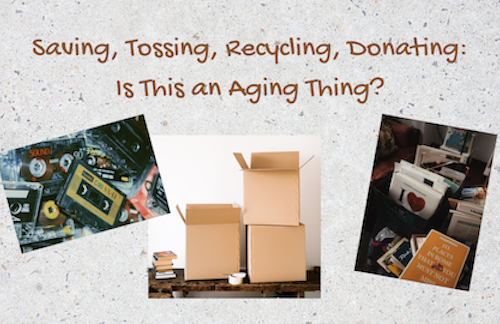Beside the Point
Redundancy: superfluous, unnecessary, extraneous, beside the point

An encounter while visiting my daughter and her family gave me my first-ever opportunity to personally experience age-related redundancy. Never before have I felt so beside the point.
One afternoon, we walked to a nearby park. Her family had lived in the area for only a few weeks, so there were lots of new people to meet. One of those new neighbors and her children were at the park too, and we began a conversation. First came the introductions. That past, the neighbor looked directly at my daughter and said, “So, how long will your mother be here?” as I stood right beside her, suddenly feeling like chopped liver. It jolted me. Hadn’t I read about this…the marginalization of the elderly? Wow. Was I now an “elderly?” This alone was tough to swallow, without suddenly also feeling I’d become invisible. My daughter answered the woman’s question, while I was left speechless and staring. Quickly searching my own memory, I wondered if I’d ever treated someone this way. It was with a sense of remorse I realized that I was, indeed, guilty. As caregiver to my parents, how many times had I disrespected them, talking over their heads with health care providers or caregivers, treating Mom and Dad as if they were superfluous? How unthinkingly easy it had been!
I watched it happen again a couple of weeks ago at a doctor’s office. This time it was someone else. As I waited for my turn to be called back, a nurse returned an elderly woman patient, who was pushing a walker, to the waiting room. She carefully helped the lady across the room to where her caregiver, perhaps a middle-aged daughter, sat. In a chirpy voice, the nurse began talking to the caregiver over this elderly woman, as if she wasn’t there. Of course, maybe this woman had dementia or any number of health concerns, but still…couldn’t the nurse have somehow included her in the conversation? I had this intense urge to ask this nurse to listen to herself and stop patronizing her patient, but my social skills are well enough developed that I refrained. This is a second example of what can happen in a social setting to the elderly (and not-so-elderly) and, I must say, it does not sit well with me. At that moment, I offered a challenge to myself, which I’ll also offer to you. Let us become more cognizant in our interactions with people, so that we are not, unthinkingly, either marginalizing or patronizing them in conversation. Let us respect our elders as living, breathing people and treat them accordingly.
Let us become more cognizant in our interactions with people, so that we are not, unthinkingly, either marginalizing or patronizing them in conversation. Let us respect our elders as living, breathing people and treat them accordingly.



